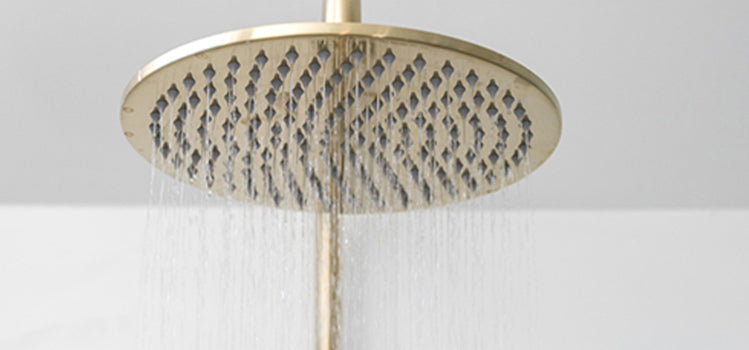 |
| Image source: warner service |
Water is the essence of life, indispensable for the sustenance of all living beings on Earth. Its significance cannot be overstated, as every aspect of human physiology relies on it for optimal functioning. From nourishing our cells to regulating body temperature, water plays a pivotal role in maintaining overall health and well-being.
While the benefits of warm water are undeniable, it's crucial to acknowledge its potential adverse effects on the body. Excessive exposure to hot water can weaken blood vessels, leading to issues such as redness, rosacea, and the development of spider veins. Individuals with sensitive skin are particularly susceptible to these conditions, as hot water can exacerbate acne and other skin irritations.
To shed more light on this topic, we sought insights from bathroom experts at Tapron and Goldbathroom. Their expertise provides valuable perspective on the importance of water temperature regulation for maintaining healthy skin and overall wellness.
Hot water showers can be dangerous for your health. Here are some alarming reasons.
Dry skin can be caused by:
Prolonged exposure to excessively hot bathwater is a common culprit behind dry skin. The intense heat strips away the skin's natural oils, leaving it parched, irritated, and prone to itching. Additionally, hot water can exacerbate existing skin conditions, causing redness, inflammation, and allergic reactions.
Furthermore, individuals with oily skin may experience an increase in oil production as a result of hot water exposure. This excess oiliness can give the skin a shiny appearance and contribute to the onset of breakouts and acne flare-ups. Therefore, it's important to be mindful of water temperature when bathing to maintain skin health and prevent these issues.
The skin wrinkles more quickly when it is stressed.
Skin tends to develop wrinkles more rapidly when subjected to stressors. Similarly, exposure to hot water can accelerate the aging process of the skin. The intense heat from hot water strips away the skin's natural oils, leading to rapid dehydration and flakiness. While high temperatures may effectively remove impurities, they fail to leave behind a protective barrier on the skin.
To mitigate premature skin aging, consider washing your face with cool water instead of hot water. Cool water helps to maintain the skin's moisture balance and preserves its natural oils, thereby delaying the onset of wrinkles and promoting a more youthful appearance. Making this simple adjustment to your skincare routine can yield significant benefits in the long term.
Are you responsible for your scalp's poor health?
Furthermore, there's the issue of dandruff, and the scalp may also become excessively dry. Exposing your scalp to intense heat can lead to burning sensations and inflammation, potentially exacerbating existing conditions. Irritation caused by hot water can even contribute to hair loss by stimulating the opening of skin pores on the scalp. Therefore, it's crucial to be mindful of the temperature of the water you use, especially when washing your hair, to prevent these adverse effects on scalp health.
It is associated with health risks
Exposure to hot water can trigger skin issues like dermatitis or psoriasis, which may necessitate prompt medical intervention. Additionally, individuals with digestive ailments such as ulcers or gastritis are advised to avoid hot water, as it can exacerbate their conditions. Furthermore, bathing in hot water poses an increased risk of heart attack, particularly for those with pre-existing heart conditions. Experts recommend limiting hot showers to no more than 20 minutes for individuals with heart disease. Moreover, individuals with severe or moderate health conditions should avoid using hot water for bathing altogether to mitigate potential risks.
Digestive problems
Partaking in a hot bath shortly after a meal can prolong the digestion process, potentially leading to discomfort and bloating. Additionally, hot baths have been associated with instances of constipation, as the elevated temperature may disrupt normal bowel movements. Excessive exposure to hot water can induce hyperthermic effects on the body, disrupting the natural flow of bodily functions. Rather than promoting increased blood flow to the stomach for digestion, the body may become confused, affecting its normal functioning.
The nails are damaged.
Frequent exposure to hot water during showers can lead to damage to your nails. When your nails absorb water during bathing, they become softer and more susceptible to breakage. This continuous softening can strip away the natural oils from your nails, making them weaker and more prone to damage. Additionally, hot water exposure can diminish the natural lustre and smoothness of your nails, further compromising their health. To mitigate this risk, consider opting for a cold shower instead of a hot one during your bathing routine. By making this switch, you can help rejuvenate your hair and skin, imparting a youthful appearance.
In addition to considering the temperature of your showers, the type of showerhead you use can also impact your shower experience. Some people prefer luxurious options like gold rainfall shower heads which are designed to provide a soothing and refreshing bathing experience. You can explore more about these shower heads in this informative blog post: Golden Rain: Elevating Your Shower Experience with Gold Rainfall Shower Heads .


No comments:
Post a Comment